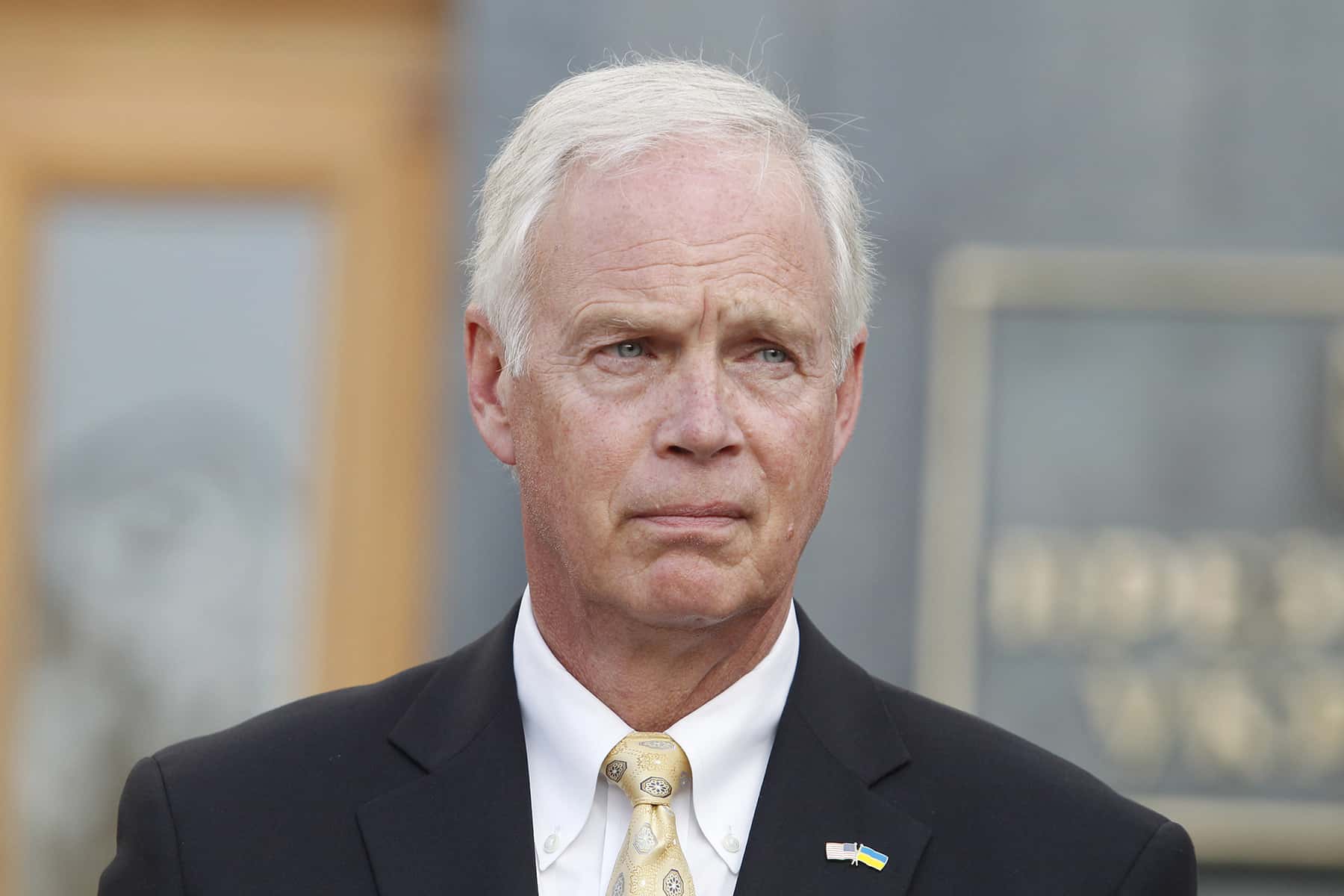
Ron Johnson, the senator from Wisconsin who has led the Republican campaign in the Senate of making unfounded claims about Joe Biden’s son Hunter, is facing a host of questions about his own ethics, including whether he personally benefited from a change in tax law that he sought in 2017.
A letter sent by Johnson to the Senate ethics committee in May has revealed the senator began the process of selling a company he partly owned in February 2018, just months after he insisted the Trump administration change a portion of the tax law in a way that ultimately benefited the sale.
The issue has become a focus of the Congressional Integrity Project, a Democratic watchdog group that is seeking to expose allegations of corruption within the Republican ranks. At the center of claims made by the watchdog group are allegations that Johnson may have sought out a change in the Trump administration’s 2017 tax bill to enrich himself personally.
Questions began swirling around Johnson’s sale of stock in Pacur in March, when it was first disclosed. Press reports questioned whether the timing of the sale reflected insider information Johnson had gleaned about the Covid-19 pandemic in his role as head of the Senate homeland security committee. In response to those questions, Johnson sent a letter to the Senate select committee on ethics, saying that he signed an engagement letter with Wells Fargo on 26 February 2018 to act as an adviser and investment banker to find an investment partner or acquirer for Pacur. The statement seemed to rule out that the sale had any connection to COVID-19.
But the revelation raised a host of other questions. Four months earlier, Johnson became the first Republican senator to announce that he would vote against Trump’s tax bill if it did not give better treatment to so-called “pass-through” entities, or companies that are taxed at rates for individual taxpayers but whose profits are distributed to owners. Johnson’s threat paid off and a change to improve the tax rate for pass-throughs was added to the law, which Johnson supported.
The change was recognized at the time as increasing the value of pass-through entities. Johnson sold his stock in his own pass-through company, Pacur, a plastics company he previously ran with is brother-in-law, on March 2, generating profits of as much as $25m on the sale. In 2017, Johnson said his stake was worth between $1m and $5m.
In a new report, the Congressional Integrity Project – which does not release the names of its funders – also suggests that Johnson’s adult children have benefited from his public role. It said that Johnson’s three adult children purchased a building in Oshkosh, Wisconsin, in 2017 using a trust set up by their parents. The building later won historic designation from the Wisconsin Historical Society – making it eligible for tax credits from the Wisconsin Economic Development Corporation– even though the process bypassed Wisconsin’s own State Historic Preservation Office.
While the project ought to have been ineligible for tax credits because construction was being performed on the property before its application to the Wisconsin Register of Historic Places was completed, that policy appears to have been set aside in the case of the new event space, called The Howard.
Emails obtained by the Congressional Integrity Project show that an official from the preservation office said he did not want to make the situation difficult for the buyers because of a “technicality,” and because the buyers “forgot” the WEDC application.
“Also an FYI in case you do not recognize the owner Carey Sharpe is Senator Ron Johnson’s daughter,” said an email from Mark Buechel, a senior preservation architect for the State Historic Preservation Office, to a colleague.
The tax credits were approved, the Congressional Integrity Project claimed, shortly before the then governor, Scott Walker, lowered the tax credits available for projects like The Howard. A spokesman for Johnson denied that Johnson was involved in his children’s business and shrugged off claims that the tax change he sought may have helped the senator personally.
“Are you aware that 96% of all businesses in America are pass-through businesses – the corner coffee shop, the auto shop, your hair salon, etc – and that Senator Johnson was seeking more equitable treatment for them in light of the tax cuts C-corp businesses were getting?” the spokesman said.
Johnson has led a campaign in the Senate to launch unfounded allegations against Joe Biden’s son, Hunter. On Fox News, Johnson recently accused Biden’s son of using his family name to make “millions” in shady overseas deals. Johnson’s committee has investigated Hunter Biden and found no evidence that Joe Biden, the former vice-president, committed any wrongdoing.
Stеphanіе Kіrchgаеssnеr
Vlаdіmіr Sіndеyеvе
Portions originally published on The Guardian as Republican senator ‘personally benefited from tax change he sought’
Help deliver the independent journalism that the world needs, make a contribution of support to The Guardian.














